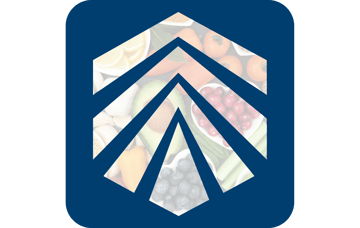At Trustwell, we’re committed to empowering food companies with tools and insights to navigate an ever-evolving supply chain landscape. If you missed our recent webinar, Future-Proofing Your Supply Chain and Streamlining Operations with Smarter Specification Management, here’s a recap of the key takeaways and how you can leverage them to stay ahead.
1. Food Supply Chain Disruptions are Inevitable
Disruptions are the norm in the food industry. Whether it’s navigating regulatory changes, adapting to lessons from the pandemic, or responding to climate-related disasters, the ability to pivot quickly is critical. At our recent webinar, Trustwell’s experts shared examples of these challenges and how businesses can tackle them head-on.
Regulatory Compliance
One of the biggest hurdles faced by food companies is keeping up with changing regulations.
FSMA 204, for example, has set new standards for traceability. As Julie McGill, our VP of Supply Chain Strategy, explained, “FSMA 204 affects the entire supply chain… you need accurate information about your products and locations to comply with traceability record-keeping requirements.” Companies must evaluate their systems, processes, and operations to ensure they’re ready for these sweeping changes.
Pandemic Lessons
COVID-19 fundamentally changed how supply chain operations function, accelerating the adoption of new technologies and prompting companies to rethink how they manage disruptions. Businesses had to pivot quickly, often reworking processes and relying on automation to keep operations running smoothly.
From managing electronic proof of delivery to adapting daily workflows in grocery stores, companies leaned heavily on solutions that enabled clear communication and streamlined operations. Automation became a vital tool for ensuring consistency and efficiency, particularly when teams were working remotely or navigating rapidly changing conditions. These lessons continue to shape the industry, underscoring the importance of flexibility, innovation, and preparedness in supply chain management.

Climate Resilience
Nothing highlights the vulnerabilities of a complex supply chain quite like a natural disaster can.
From hurricanes to wildfires, the lesson remains the same. “Visibility to your supply chain is absolutely critical. It’s not just about understanding what inventory needs to be moved but also how to reroute it efficiently when your primary or secondary suppliers are offline,” advised Julie. Having real-time data and contingency plans in place can make the difference between keeping operations running and experiencing significant delays.
The key takeaway? Be proactive. Regularly evaluate your systems, stay informed about regulatory updates, and maintain strong supplier relationships. Disruptions may be inevitable, but derailment is not. You just need the right tools and strategies.
Listen Up: Climate Change and AI in Agricultural Supply Chains with Francisco Martin-Rayo
2. Food Supply Chain Technology Can Help
Technology is no longer optional in supply chain management—it’s the backbone of resilience and efficiency. During the webinar, our panelists explored how modern solutions can help food companies streamline their operations, enhance compliance, and stay ahead of disruptions.

Data Integration and Interoperability: Managing a supply chain requires seamless data integration. Trustwell’s platforms, including FoodLogiQ and Genesis Foods, unify essential functions like labeling, compliance, and traceability into a single source of truth. This consolidation ensures that businesses have accurate, real-time data to make informed decisions. Julie stressed the importance of connected systems: “Systems that house this data must be both integrated and interoperable… it’s not just about what’s inside your four walls but also what you share with trading partners.”
AI and Emerging Tech: The future of supply chain management lies in leveraging advanced technologies. Todd Dolinsky, Trustwell’s Chief Product Officer, highlighted how tools like RFID, low-energy Bluetooth, and AI are transforming the industry. “AI is becoming a key component in ensuring data quality,” he explained. “It can detect errors and provide actionable insights, helping companies stay ahead of potential issues.”
Watch Now: The Role of AI in Food Safety Applications
Digital Readiness for Disruptions: Maintaining a digital version of your supply chain is essential for resilience. Trustwell’s platforms enable businesses to track suppliers, update contacts, and reroute inventory with ease. Todd shared a practical example: “When a supplier or location goes offline, our tools allow you to quickly assign new locations or approve alternative suppliers. This kind of flexibility is what businesses need to thrive in uncertain conditions.”
Ultimately, technology isn’t just about solving today’s problems—it’s about preparing for tomorrow’s challenges. By adopting digital tools that prioritize accuracy, interoperability, and adaptability, you can ensure your supply chain is ready for anything. Whether it’s navigating new regulations or responding to unexpected disruptions, technology gives you the confidence to move forward.
3. Food Specification Management Can Streamline Operations — Here's How
Managing product specifications might not be the flashiest part of the food industry, but it’s one of the most important. Whether it’s ensuring compliance, maintaining product quality, or keeping your supply chain moving smoothly, specification management plays a vital role.
Read More: 6 Signs You Need a Fresh Approach to Food Product Specification Management
Simplify the Complex
Food products come with a vast array of details—nutritional profiles, packaging requirements, allergens, and more. Managing this data manually or across disconnected systems can lead to inefficiencies and costly mistakes. A centralized specification management system streamlines this process by consolidating all product details into one platform. This approach ensures that your specifications are accurate, tailored to your unique requirements, and free from inconsistencies or missing information.
Strengthen Supplier Communication
Getting the right specifications to the right people at the right time is critical, especially during disruptions or product updates. With a streamlined system, specifications can be routed directly to suppliers or locations for acknowledgment and implementation, ensuring clear communication and reducing delays. When changes arise, such as the need to switch suppliers or facilities, having an efficient process in place allows your team to make updates quickly and keep everyone aligned.
Digital Download: The Supplier Relationship Management Playbook
Align with Compliance and Labeling
To maintain accuracy and regulatory compliance, it’s essential to use tools that integrate food specification management with formulation and labeling. This integration ensures that any changes to product specifications flow seamlessly into updated recipes and labels, reducing the risk of errors. For example, if an ingredient substitution is required, the adjustment can be reflected across all related documentation, ensuring consistent compliance and accurate labeling. By connecting these elements, you save time and avoid the costly errors that can arise from manual processes
Stay Agile
From natural disasters to ingredient shortages, disruptions in the supply chain are inevitable. The key to resilience is how quickly and effectively you can adapt. A robust food specification management system ensures that your operations remain flexible, allowing you to reroute production, onboard alternative suppliers, or adjust specifications without significant downtime.
This level of preparedness transforms your approach to supply chain challenges. Instead of reacting to crises, your team can focus on strategic improvements, innovation, and long-term growth. Food specification management isn’t just about keeping things organized—it’s about building a proactive, agile operation that stays ahead of the curve.
4. Food Companies Must Build Resilient Supply Chains
Resilience isn’t just a buzzword—it’s the foundation of a successful supply chain. As our webinar panelists explained, building a resilient supply chain requires preparation, collaboration, and the right tools to respond to disruptions effectively.Test Your Plans Before You Need Them
A key theme of the discussion was preparation, with McGill advising: “You have to test your plans. Run mock recalls and audits. Whatever you put in place the first time, something’s going to change, and you’re going to have to update it.” Regular testing ensures your team knows what to do when disruptions occur, whether it’s a regulatory audit or a recall. It also helps identify gaps in your processes before they become real problems.
Watch Now: 5 Tips for Conducting Mock Recalls
Foster Collaboration Across Teams
Supply chain resilience isn’t a one-person job. It requires coordination between multiple teams, including operations, legal, and supply chain management. Julie noted that while food safety teams often take the lead, they can’t carry the responsibility alone. “Regulatory compliance is a cross-functional effort,” she said. “You need everyone on the same page and meeting regularly to review plans and updates."

Leverage Technology to Stay Agile
The right tools and technology are critical for staying ahead of disruptions. They provide visibility into your supply chain, allowing you to identify vulnerabilities and act quickly when challenges arise. Julie highlighted how these tools help companies maintain agility: “Having supply chain visibility isn’t just about compliance—it’s what allows you to reroute inventory, communicate with suppliers, and make real-time decisions.”
Adapt to Change and Thrive
The food industry is constantly evolving, whether due to regulatory changes, climate disruptions, or shifting consumer demands. Todd Dolinsky pointed out that resilience also means staying flexible: “You don’t know what the next hurdle is going to be, but you can be sure there will be one. Preparedness is about being ready for the unknown.”
By testing your systems, aligning your teams, and leveraging advanced tools, you can create a supply chain that’s not just reactive but proactive. Resilience means your business can weather the storm and come out stronger on the other side.
Bonus Takeaway: Trustwell has the tools and technology for smart, centralized food spec management
When disruptions hit, the ability to adapt quickly can make or break your supply chain. Trustwell’s FoodLogiQ Product Management is designed to keep your operations running smoothly, no matter what challenges arise. Tune into the webinar on-demand for a demonstration of how the platform can streamline processes and improve agility in real-world scenarios.
- Centralized Data for Better Decisions
At its core, FoodLogiQ is about creating a centralized hub for managing your supply chain data. The platform integrates supplier details, product specifications, traceability, and compliance into one user-friendly system. For example, if a manufacturing facility goes offline, you can quickly reassign production to an alternate location, ensuring minimal downtime. - Disruptions Made Manageable
Imagine this: one of your key suppliers suddenly can’t deliver. Without the right tools, finding and onboarding an alternative supplier would take days, if not weeks. With FoodLogiQ, it’s as simple as clicking a button, allowing users to assign specifications to new suppliers or locations instantly. - Genesis Foods Integrations
One of FoodLogiQ’s standout features is its integration with Genesis Foods. This connection ensures that your recipes, nutritional data, and labels are aligned with your specifications. Recipe changes—like swapping an ingredient due to a shortage—can flow directly into updated specs and supplier communications.
With FoodLogiQ, your supply chain becomes more than just a series of moving parts—it’s a well-oiled machine ready to face whatever comes next.
FoodLogiQ is designed to keep you agile and competitive in a rapidly changing market by ensuring compliance, expediting approvals, streamlining supplier communication, and enhancing collaboration. Effortlessly access the most up-to-date product specifications, nutritional information, and supplier details with FoodLogiQ, and advance with new products that meet your quality and compliance standards.
Ready to see how FoodLogiQ can transform your product management?
Contact Trustwell today or try an interactive demo of FoodLogiq Product Management and discover for yourself how our solution can support your business, from recipe to recall.
Other posts you might be interested in
View All Posts
Food Industry
8 min read
| May 2, 2024
Navigating the Build vs. Buy Dilemma: Opting for Trustwell’s FoodLogiQ for FSMA 204 Compliance
Read More
Food Industry
5 min read
| April 18, 2023
Trustwell Launches New Podcast: Transparency Talk with Trustwell
Read More
Food Industry
18 min read
| March 7, 2024


